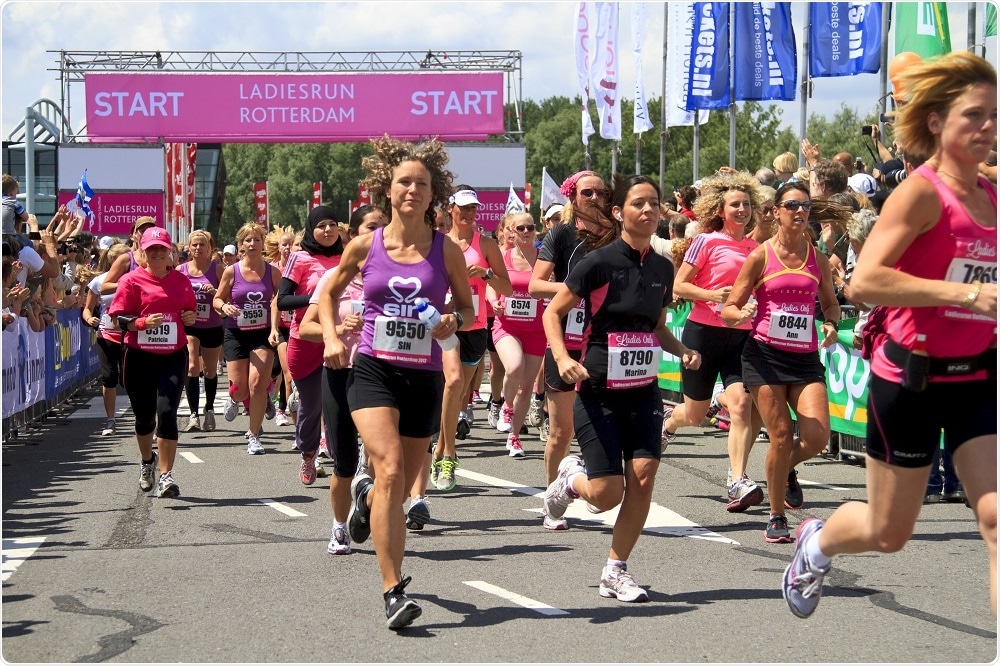Sep 22 2017
A study conducted by a team of researchers at the San Diego School of Medicine, University of California, reported that physical activities can more than double the post-treatment mental processing speed of breast cancer survivors.

© TTStock / Shutterstock.com
It is estimated that among breast cancer survivors, 75% were estimated to encounter problems with cognitive difficulties after treatment, whether or not they had received chemotherapy; in a few cases, it even lasts for years. Presently, some science-based aids are available for such patients.
A recent pilot study that was published in the journal Cancer, analyzed 87 female survivors of breast cancer. The study was conducted as a 12-week-randomized trial in which half of the participants were involved in a physical activity intervention matched to each participant’s physical ability and interests; and used wearable activity devices to capture the data.
The other half of the participants were allocated to a control group and received emails that spoke on topics related to women's health, stress reduction, healthy diet, and general brain health.
Sheri Hartman, PhD, assistant professor in the Department of Family and Preventive Medicine and co-director of the diet and physical activity shared resource at UC San Diego Moores Cancer Center said: “The women who participated in the physical activity intervention experienced a significant improvement in cognitive processing speed and some improvements in their perceived mental abilities”.
According to Dr. Hartman, the study supported the notion that exercise might help improving cognition in survivors of breast cancer.
In the trial, changes in cognition was measured at the beginning and end of the trial period using National Institutes of Health (NIH) Toolbox Cognition Domain which is a computer-based cognitive abilities test, as well as the Patient Reported Outcomes Measurement Information System by which brain function abilities and problems are self-reported.
The results indicated over double the improvements in processing speed for participants in the exercise arm, when compared to the control group. Also, participants in this arm, who were 2 years or less from diagnosis, were identified to be 4 times more likely to show improvement in this area.
Hartman commented the study was a preliminary one, and suggested from this initial data the need to intervene closer to diagnosis to have a better impact.
When compared with the control group, the findings also showed a three times improvement in self-reported cognitive abilities for the participants in the intervention arm.
Even though the study analyzed various aspects of cognition, a significant improvement could only be found in processing speed.
In order to find out whether increased physical activity impacts other aspects of cognition, the researchers recommended further longer and larger trials.
Before starting the study, all the participants were asked to wear a research-grade accelerometer on their hips for 7 days. It calculated their baseline physical activity. Towards the end of the trial, this was repeated again for another 7 days in order to compare changes.
The women in the exercise arm were made to wear a Fitbit One activity tracker during the study period and the data collected by these means were sent to the researchers so that they could extract activity levels, deliver feedback as well as encourage them to involve in a minimum of at least 150 minutes of physical activity (moderate-to-vigorous) in a week.
Participants of the intervention program increased their weekly physical activity up to 100-minutes. They were also provided with e-mail and call supports.